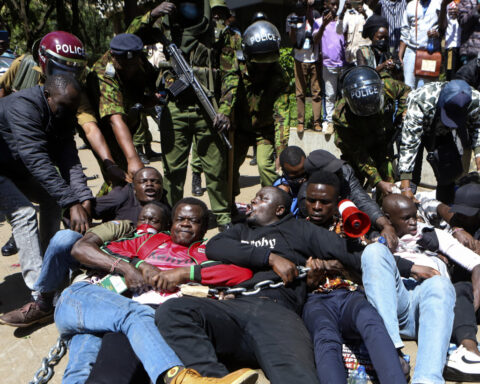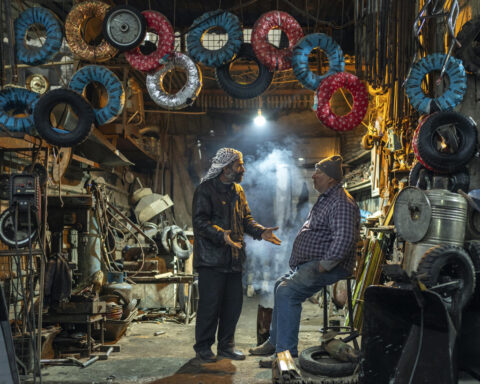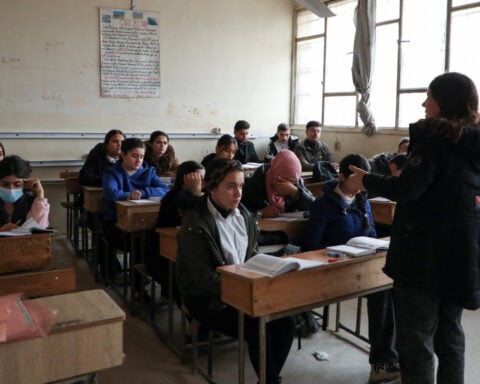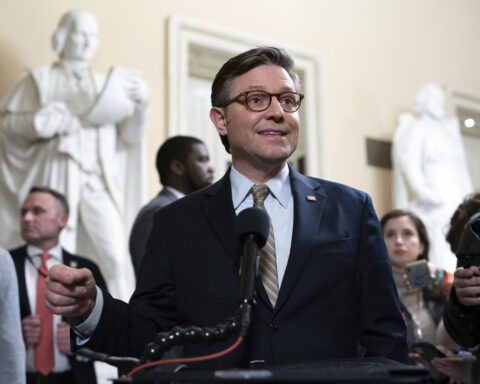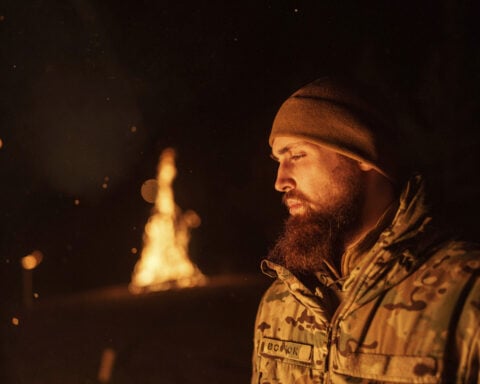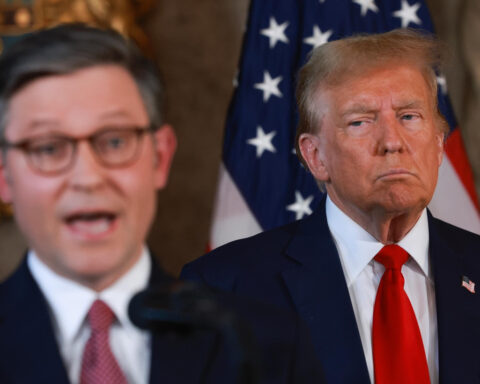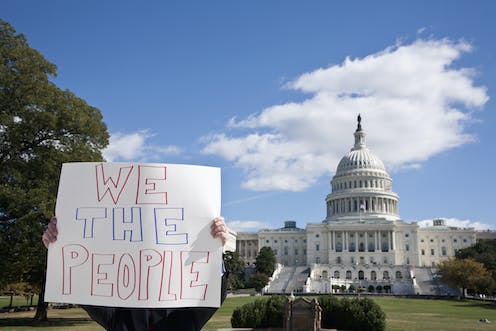
The United States’ founders firmly rejected King George III and the entire idea of monarchy 247 years ago, on July 4, 1776.
Political power does not come from some absolute authority of a king over people, the founders argued. Rather, political power comes from the people themselves. And these people must agree to any authority governing their society.
This is why the U.S. Constitution starts with the words “We the People,” and not “I, the ruler.”
I am a historian, ethicist and media scholar and have studied how people build communities.
America’s founders did not trust everyone’s ability to equally participate in the new democracy, as laws at the time showed.
But, because of policy changes on issues like voting, the idea of who actually is represented in the phrase “We the People” has changed over time.
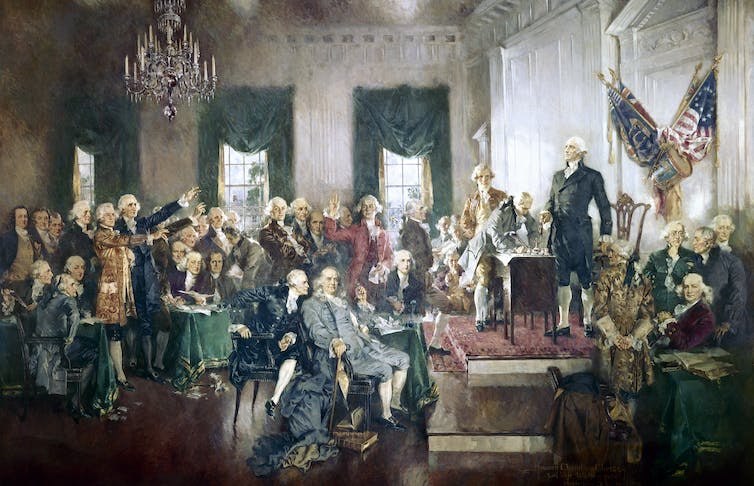
First steps
In 1776, only white men who owned property had the right to vote.
“Few men, who have no property, have any judgment of their own,” as former President John Adams wrote in 1776.
As activists – including some women and Black Americans – proclaimed their equality, public education spread, and social thinking shifted.
By about 1860, all state legislatures had lifted property requirement for voting. Allowing only wealthy property owners to vote did not align with the democratic notion that “all men are created equal.”
While some states, like Vermont, eliminated the property voting requirement in the 18th century, this shift became more popular in the 1820s and the 1830s.
Congress passed the 15th Amendment in 1870, giving Black men and others the right to vote, regardless of race.
But that amendment still excluded some people, chiefly Native Americans and women.
An unfinished history
Despite the 15th Amendment, violence and intimidation in some states still prevented Black men from voting.
State lawmakers also used bureaucratic measures, such as a poll tax, renewed attempts at a property requirement and literacy tests, to prevent African Americans from voting.
The fight over African American suffrage continued for decades, and many courageous Americans protested and were arrested or killed in the struggle to exercise their voting rights.
Thanks to the work of civil rights activists – including John Lewis, Fannie Lou Hamer and Marting Luther King Jr. – public opinion shifted.
In the 1960s, Congress passed additional legal measures to protect the voting rights of Black Americans. This included the 24th Amendment, which outlawed the use of poll taxes, and the 1965 Voting Rights Act, which prohibited any racial discrimination in voting.
Women’s turn
In 1920, women gained the right to vote with the addition of the 19th Amendment, following another decadeslong struggle.
Women’s rights activists made the first organized call for female suffrage at the Seneca Falls Convention in 1848.
In the following years, suffragists pushed for constitutional amendments, state laws and a change in public thinking to include women in “We the People.”
Native American rights
Having self-governed for centuries, Native Americans were not legally recognized with voting rights until Congress approved the Indian Citizenship Act in 1924.
While that supposedly gave Native Americans the same rights as other Americans, Native Americans faced the same tactics, like violence, that white racists used to prevent Black Americans from voting.
Like other people excluded from “We the People,” Native Americans have continued to push for voting rights and other ways to ensure they are included in American self-government.
Making democracy more democratic
In 1971 “We the People” again expanded, to include younger people, with the lowering of the voting age from 21 to 18. The ongoing Vietnam War shifted public opinion, and there was popular support for the idea that someone old enough to die fighting for their country should also be able to vote.
A government once described by Abraham Lincoln as “of the people, by the people, and for the people” was now going to technically include all of the people.
But equality for women, young people and racially marginalized groups did not change overnight.
Social equality remains far off for many people, including undocumented immigrants, for example, and LGBTQ+ individuals.
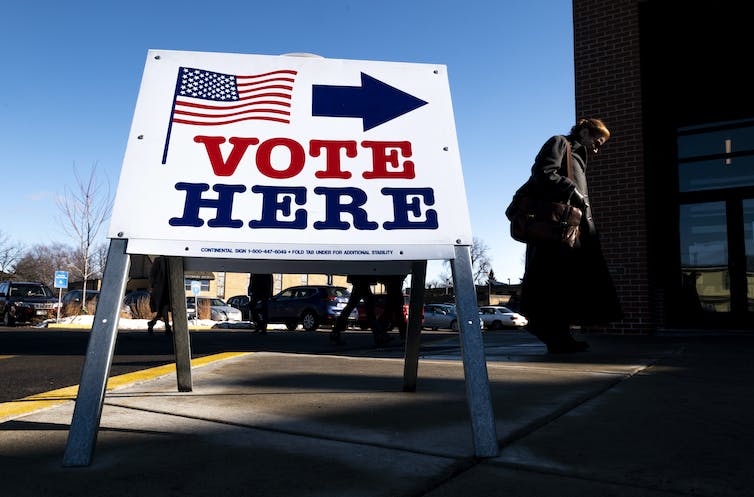
Current limitations to ‘We the People’
The government has recognized that citizens over the age of 18 have a right to participate in self-government. But there are still political and legal attempts to restrict people’s ability to vote.
While some states have passed new laws that make it harder to vote in recent years, other states have made it easier.
North Carolina passed new ID requirements in April 2023 that make it difficult for those without current state identification to vote.
Texas, Georgia, Oklahoma and Idaho are also among the states that are deleting some voters from their rolls – if people do not regularly vote, for example.
Arizona has closed multiple polling sites, making it more difficult for some people to vote.
Twenty-five states, meanwhile, including Hawaii and Delaware, have passed laws over the last few years that make it easier to vote. One of these measures automatically registers people to vote when they turn 18.
There are more examples. The bottom line is, voters have fewer protections when it becomes harder to vote, and American democracy is not as democratic as it could be.
The big picture
Voting is not the only form of recognition and participation in a democracy. People can be respected at work, paid what they are worth and treated with dignity. Community members can be treated fairly by police, school officials and other authorities, given an equal opportunity for justice and education to improve their lives.
People can also contribute to the social and economic well-being of a democracy in ways other than voting, doing everything from planting a tree in a public park to attending a political rally.
But the overall expansion of voting rights and a historical understanding of “We the People” shows that everyone belong in a democratic society, regardless of wealth, achievement or other differences.
Joseph Jones does not work for, consult, own shares in or receive funding from any company or organization that would benefit from this article, and has disclosed no relevant affiliations beyond their academic appointment.

 Making any New Year's resolutions? Here are some tips to help make them stick
Making any New Year's resolutions? Here are some tips to help make them stick
 Argentine judge charges 5 people over death of former One Direction star Liam Payne
Argentine judge charges 5 people over death of former One Direction star Liam Payne
 US stocks fall with one trading day left in 2024
US stocks fall with one trading day left in 2024
 The world population will be 8.09 billion on New Year's Day after a 71 million increase in 2024
The world population will be 8.09 billion on New Year's Day after a 71 million increase in 2024
 Biden announces nearly $2.5 billion more in military aid for Ukraine
Biden announces nearly $2.5 billion more in military aid for Ukraine
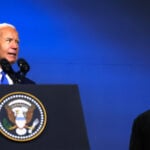 US announces $5.9 billion in military and budget aid to Ukraine
US announces $5.9 billion in military and budget aid to Ukraine
 Auriemma ties VanDerveer for most appearances at one school in women's AP Top 25; UCLA remains No. 1
Auriemma ties VanDerveer for most appearances at one school in women's AP Top 25; UCLA remains No. 1
 Riley Leonard's passing game improvement key for Notre Dame in CFP quarterfinal against Georgia
Riley Leonard's passing game improvement key for Notre Dame in CFP quarterfinal against Georgia
